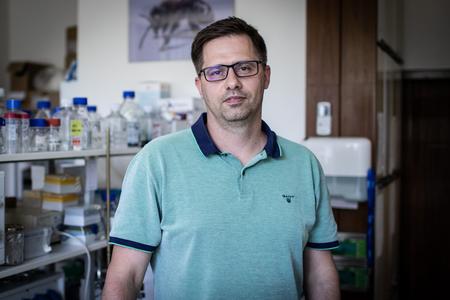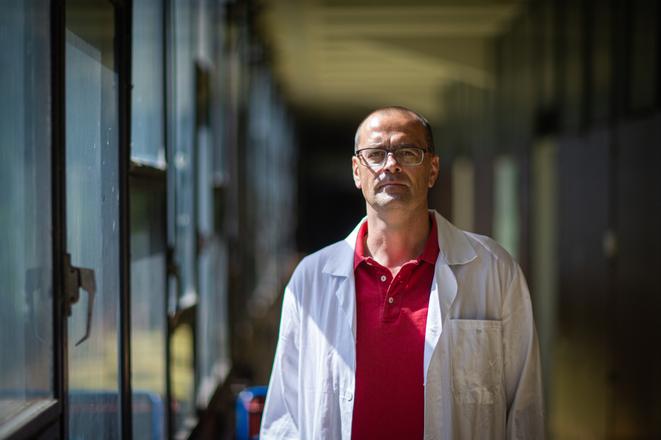When people open a refrigerator and see rotting food, the immediate reaction is reflexively usually one of disgust. Although such reactions have been common to humans for hundreds of thousands of years, it is only recently that research has focused on this particular emotional response, and in the last few years a growing number of studies have focused on the relationship between feelings of disgust and everything from ecological conservation to attitudes towards LGBTQ people.
PAVOL PROKOP, a behavioural ecologist at Comenius University in Bratislava and Institute of Zoology of the Slovak Academy of Sciences, was recently named Slovak Scientist of the Year by the Education Ministry. In an interview with The Slovak Spectator, he talks about his studies and explains how aspects of human behaviour are related to evolution.
You participated in a recent study about disgust. Why do we need to study this particular sensation?
We need to understand what good it is to us. As humans, we study whether certain things have any meaning from an evolutionary point of view.

Is it only recently that research [on disgust] began? After all, disgust has been with us for thousands of years.
One study from ten years ago analysed the number of articles that scientists devoted to disgust. In the 1990s, there were almost none, but there had recently been a bit of a renaissance. It turns out there are connections between disgust and, say, political preferences, or willingness to protect the environment. In the past, no one thought about it. According to traditional psychologists, emotions are either positive or negative.
Evolutionary psychologists reject this. We only have something that is adaptive, and that is the common denominator. I think that maybe because disgust was considered to be negative, no one paid attention [to it]. From our point of view, things are neither good nor bad, there are only things where the benefits outweigh the costs or vice versa. In other words, in a given population in a given time and space, there are strategies that have, and do not have, a chance of survival.
Do animals experience disgust in the same way humans do?
We do not have as much information [as for humans]. It is difficult to observe. But, for example, we have neurobiological evidence that when experiencing disgust, the same part of the brain - the insula - is activated both in mice and humans. When a mouse is given slightly contaminated food, some facial expressions can be observed suggesting disgust.
Why is it difficult to observe?
When an animal sees something it finds disgusting, you need to have it connected to an MRI scanner to see what is happening in its brain, which is easier said than done. In humans, we know that the greater the excitation of neurons, the more aversive a given stimulus will be to a person. We do not need to use an MRI for every subject.
Has the role of disgust gradually changed as humans have evolved?
Just as in any other animal, in humans disgust is pathogenic. But, depending on [an individual’s] views, sexual and moral disgust may be experienced. We have not yet been able to detect the latter in animals. We assume that pathogen disgust is primary, to protect us when we come into contact with contaminants. It was probably when people began to live in groups that moral disgust developed. This is related to the violation of traditional, social, and cultural norms.
Is it always the same part of the brain that is activated when we experience any of these types of disgust?
Some studies show very close correlation in activation between moral and pathogenic disgust. We think it is because the neurons responsible for both are close to each other. The exact proof lies in identical activation of mimic muscles during both. When someone gets ahead of you in a queue for a ticket, for example, and you look at them in disgust, [the facial reaction is] exactly the same as when you open a refrigerator and see rotten food.

The study I mentioned at the beginning was related to perceptions of homosexuality. Is there a link between pathological disgust and attitudes towards LGBTQ people?
We think there is a connection in that when minorities do not conform to sexual norms, this can bring a risk of sexually transmitted diseases, and this brings us back to pathogenic disgust. Those connections are not very strong, but they are consistent in various studies that approach the matter in different ways. It turns out that this applies not only to homosexuals, but also prostitutes.
Is this in any way related to political views, for example conservatism?


 Pavol Prokop. (source: SME - Marko Erd)
Pavol Prokop. (source: SME - Marko Erd)